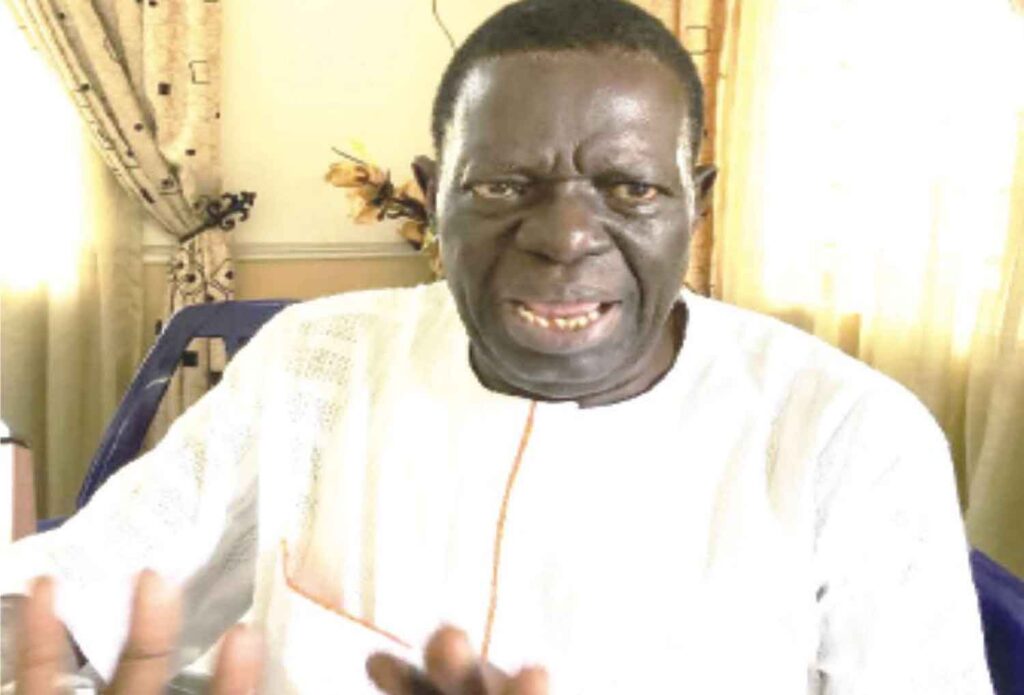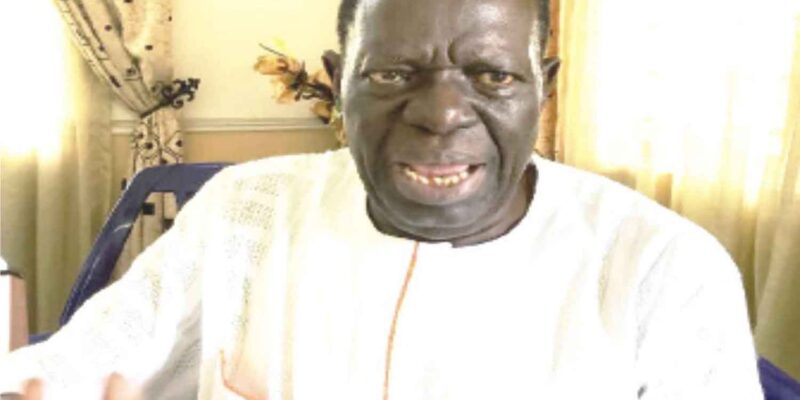
Pioneer Chief Whip of the Nigerian Senate and a veteran lawmaker of the Fourth Republic, Senator Roland Stephen Owie, has raised alarm over what he describes as a disturbing decline in the country’s democratic, judicial, and security systems. In an exclusive interview reflecting on Nigeria’s 26 years of uninterrupted civil rule, the former senator, who represented Edo South under the Peoples Democratic Party (PDP), offered scathing commentary on the current state of the nation and the path forward.
Owie, a key figure in Nigeria’s return to democracy in 1999, who also served in the House of Representatives as far back as 1979, did not mince words in his evaluation of recent judicial decisions by the Supreme Court, expressing concern over growing constitutional ambiguities and the erosion of public trust in the legal system. Referring specifically to high-profile political cases—including the controversial Rivers State local government election ruling, the protracted tussle over the PDP Secretary position, and the ongoing Labour Party factional crisis—he argued that such conflicting judgments are sowing confusion and raising legitimate concerns about judicial consistency and impartiality.
While maintaining respect for the judiciary, he warned that without deliberate introspection and reform, the judiciary risks losing the very credibility upon which democracy depends. In his words, “The judiciary is the final frontier of democratic legitimacy. To avoid a complete erosion of public confidence, Nigeria must pursue comprehensive judicial reforms rooted in transparency, independence, and political insulation. Anything less is akin to applying plaster on a festering wound.”
Senator Owie also voiced disappointment over the deafening silence of civil society actors in the face of worsening governance and democratic decline. Once known for their vibrant opposition to executive excesses, he lamented that many civil society organizations (CSOs) have become complicit and compromised, often acting more like extensions of government than as independent watchdogs. According to him, the commercialization of civil society, coupled with an unhealthy dependence on donor funding, has created a network of NGOs that are more focused on survival and relevance than on challenging the status quo.
He stressed that civil society must be reclaimed and reoriented to its original mission. He called for regulatory reforms similar to the U.S. 501(c)(3) nonprofit structure and the UK Charity Commission to monitor the credibility and accountability of non-governmental organizations in Nigeria. “The public must hold CSO leaders accountable and reject duplicity,” he emphasized, adding that civic groups must once again become a voice for the voiceless and a counterbalance to unchecked power.
On the issue of anti-corruption, Owie did not hide his skepticism. He described the federal government’s fight against corruption as selective, symbolic, and largely performative. He argued that despite numerous pledges to tackle corruption head-on, the appointments of individuals with unresolved corruption allegations into high offices continue to undermine public trust. Citing the probe of former Central Bank Governor Godwin Emefiele as an example, Owie stressed that such cases, while headline-grabbing, do not amount to a coherent or credible anti-corruption strategy. “What we see is selective prosecution and theatrical symbolism, not deep reform,” he said.
Turning to the economy, Owie expressed disappointment with how official data is being used to mask the harsh realities on the ground. He questioned the relevance of GDP rebasing and manipulated inflation figures when ordinary Nigerians are battling hunger, high fuel prices, collapsing healthcare, and unaffordable education. He asserted that economic policy must be human-centered rather than data-driven. “Numbers mean nothing if Nigerians can’t afford food, healthcare, or education. Economic policy must move from abstraction to lived experience,” he noted.
He criticized the removal of fuel subsidy and the deregulation of the petroleum sector, saying the move was not only poorly planned but also morally flawed. Without cushioning the impact or providing alternatives for the masses, the policy, in his view, inflicted unnecessary hardship on already struggling citizens. “Removing subsidies without preparing a viable safety net was not only tactically flawed. It was morally irresponsible,” he said. “Strategic sequencing and humane implementation are the cornerstones of meaningful reform. Unfortunately, this was poorly thought through and chaotically executed.”
On the issue of public support for the Tinubu administration, Senator Owie made it clear that the growing disenchantment is not political but rooted in survival. “Hunger has no ideology,” he declared. “You cannot engage a starving population in policy discourse. Governance must first guarantee subsistence before expecting civic loyalty.” He maintained that no amount of media spin or policy rhetoric can convince the people when their lived reality is one of poverty, insecurity, and hopelessness.
The senator was equally critical of the nation’s security situation. He expressed shock over reports that close to N19 trillion has been spent on security-related expenditures while Nigerians remain plagued by terrorism, kidnapping, banditry, and communal conflicts. He called for a thorough public inquiry into how such massive sums were allocated and spent, insisting that no democracy can thrive when public funds are expended without scrutiny or accountability. “It is shocking to hear that nearly N19 trillion has been spent on security, yet Nigerians remain unsafe. The current National Assembly, which appropriated these funds, must lead the charge for accountability and public inquiry,” he said.
Owie characterized Nigeria’s security crisis as systemic and existential, arguing that what the country needs is not another task force or public campaign, but a complete reset. He called for reforms in intelligence gathering, inter-agency coordination, the modernization of armed forces, and the full empowerment of local and state governments through community policing frameworks.
When asked about the growing impunity surrounding the release of criminals despite overwhelming evidence, Senator Owie pointed to a broader institutional failure. While acknowledging shortcomings in the police and judiciary, he stressed that the problem is deeper—political, systemic, and sustained by vested interests. “This is a dangerous trend and yes, the police and judiciary must take some blame, but this issue is deeper. It is political. It is systemic,” he said. He called for honest national conversations, the rebuilding of institutional integrity, and the political will to confront entrenched interests.
Summing up his assessment of the state of the nation, Senator Roland Owie painted a sobering picture of a country that has strayed dangerously off course. Yet, he maintained that hope is not lost if the right actions are taken with sincerity and urgency. His message was clear: reform must be bold, inclusive, and people-focused—because without justice, security, and credibility, democracy remains nothing more than a fragile illusion.

Comments